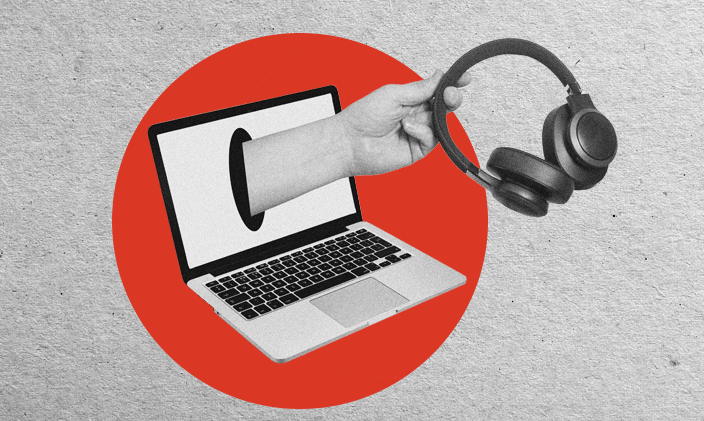2023 Career Optimism Index® Reveals How Employers Can Retain Talent in a “Free Agent” Labor Market
 2023 University of Phoenix Career Optimism Index: Key Findings
2023 University of Phoenix Career Optimism Index: Key Findings
By Sharla Hooper
The study was conducted by the University of Phoenix Career Institute®, part of the University’s College of Doctoral Studies, which examines workforce dynamics to inform solutions that help break down barriers to career advancement.
Today the University of Phoenix Career Institute® released its 2023 Career Optimism Index® study, a comprehensive look at the state of American workers' career trajectories and their sentiments about the future of their jobs and career opportunities. This year's Index study, the third consecutive year the study has been fielded, reveals that despite ongoing personal and professional challenges, the majority of American workers remain hopeful about the future of their careers.
However, their hope is grounded in their own sense of personal efficacy, not in the belief that their current employers are doing what it takes to support their career growth today and in the future. This has led to a “free agent” labor market, where the workforce feels confident in the opportunities available to them and are willing to pursue alternative job paths to achieve both their career goals and work/life balance needs.
Designed to identify barriers to career advancement and inform solutions to address them, the Career Optimism Index® measures employee and employer attitudes, priorities, and challenges. It indicates that by investing in several key, foundational career support areas, employers can channel workers’ optimism in their own abilities to their current place of work, benefiting both businesses and their workforces.
What Workers Are Saying
- Workers continue to face challenges: 65% of Americans report living paycheck to paycheck, a dramatic increase from 56% last year, with 47% experiencing burnout at work and half of those individuals reporting that it has worsened in the past year.
- Yet optimism remains steady, with 80% of Americans being hopeful about the future of their careers, but not with their current employer.
- 53% of American workers are actively looking for a new job or expect to in the next 6 months, with 46% of American workers willing to leave if their current employer offered them a severance package of 3-months' pay.
- However, among those looking for a job or expecting to look for a job in the next six months, 68% said if their company did more to upskill them, they would be more likely to stay.
What Employers Can Do
- Make Mentorship Mandatory: Compared to last year, mentorship programs are down. 43% of workers say mentorship programs are offered/going to be offered by their employer soon vs. 50% last year. The majority of Americans (56%) say they do not have a mentor, and 42% of Americans say they do not have an advocate in their professional life. A third of Americans say lack of mentorship/advocacy from a professional network has held them back in their careers (34%).
- Invest in Skilling: 70% of Americans say if their company gave them more opportunities apply new skills, they would be more likely to stay throughout their career. Yet 40% of workers say their company never provides specific reskilling opportunities.
- Nurture Workplace Wellness: 74% of Americans say they feel stressed about their job/career. 39% of Americans say they have looked for mental health resources to help manage their work-related stress.
“With an unstable economy, retention has become critical – especially for top talent – and employers are looking for solutions beyond office perks and happy hours. What we’re finding in our Career Optimism Index® study is the American workforce is resilient, persistent – and taking their careers seriously. They want opportunities for mentorship and advocacy, investment in new skills and internal career advancement. If they aren’t getting these opportunities from their current employer, they’ll easily walk,” said John Woods, Provost and Chief Academic Officer, University of Phoenix.
“What’s more is there’s a growing gap between how employers think they are doing with these foundational career-building opportunities and how employees perceive their employers are doing, which should serve as a wake-up call. Employers are faced with the reality that transactional benefits are no longer sufficient to achieve employee retention; there is a clear mandate to provide deeper, long-term support for and investment in their workforces,” Woods said.
Housed within the University's College of Doctoral Studies, the University of Phoenix Career Institute® conducts research to inform problem-solving and partners with leading organizations such as Jobs for the Future (JFF) to break down barriers that Americans face in their careers. The Institute has committed to fielding the Career Optimism Index® study every year, sharing the results broadly to help inform societal solutions to career advancement and workplace equity, including JFF’s Center for Racial Economic Equity recently released Social Capital Framework, which provides practical strategies for employers and higher education institutions to promote Black economic advancement.
For more information about the University of Phoenix Career Institute® and the complete Career Optimism Index® Study, visit www.phoenix.edu/career-institute.
ABOUT THE CAREER OPTIMISM INDEX™
The Career Optimism Index® study is one of the most comprehensive studies of Americans' personal career perceptions to date. The University of Phoenix Career Institute will conduct this research annually to provide insights on current workforce trends and to help identify solutions to support and advance American careers and create equity in the workplace.
For the third annual study, fielded between December 9, 2022 – January 13, 2023, more than 5,000 U.S. adults were surveyed on how they feel about their careers at this moment in time, including their concerns, their challenges, and the degree to which they are optimistic about core aspects of their careers. The study was conducted among a diverse, nationally representative, sample of U.S. adults among a robust sample to allow for gender, generational, racial, and socioeconomic differences and includes additional analysis of the workforce in the top twenty DMA markets across the country to uncover geographic nuances. The study also explores insights from 500 U.S. employers who are influential or play a critical role in hiring and workplace decisions within a range of departments, company sizes and industries to provide comparison between the workforce and those who hire, train, and retain them.
ABOUT THE UNIVERSITY OF PHOENIX CAREER INSTITUTE®
University of Phoenix Career Institute™ was created to address broad, persistent, and systemic barriers to career advancement through research-based solutions and impactful partnerships that break down barriers Americans face in their careers.
ABOUT UNIVERSITY OF PHOENIX
University of Phoenix is continually innovating to help working adults enhance their careers in a rapidly changing world. Flexible schedules, relevant courses, interactive learning, and Career Services for Life® help students more effectively pursue career and personal aspirations while balancing their busy lives. For more information, visit phoenix.edu.


